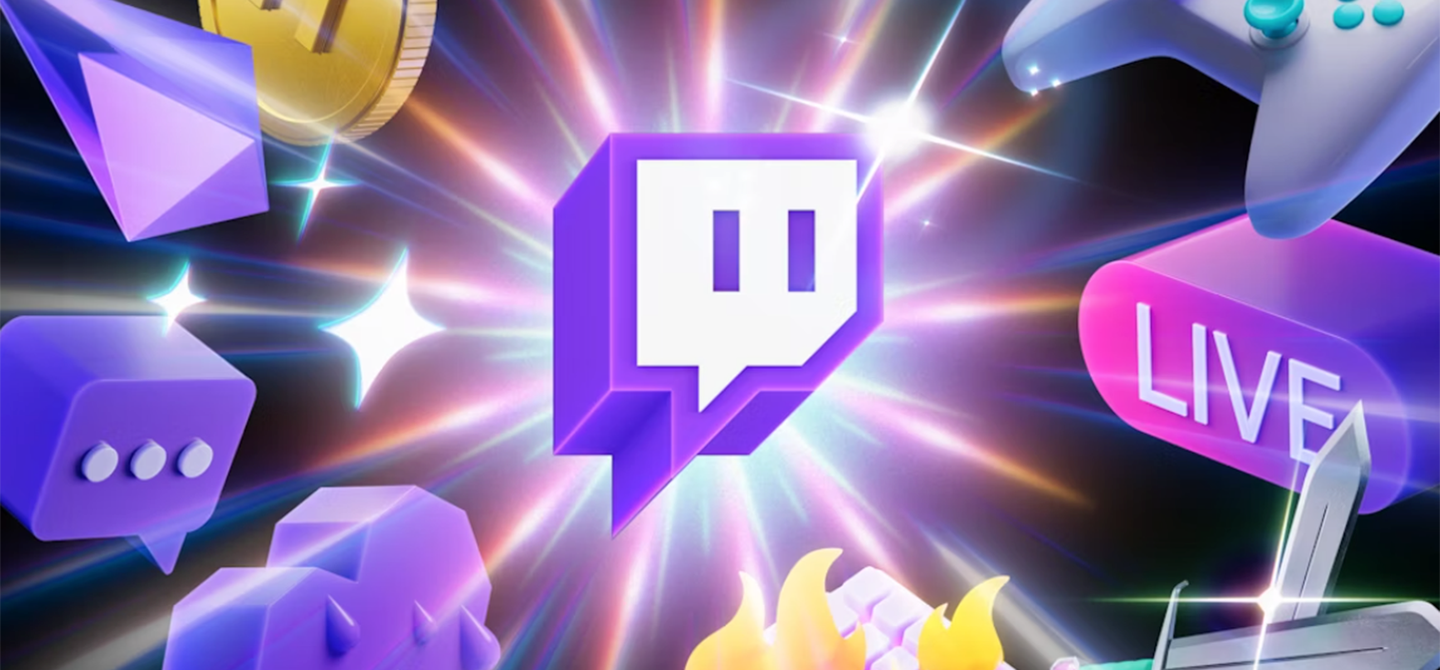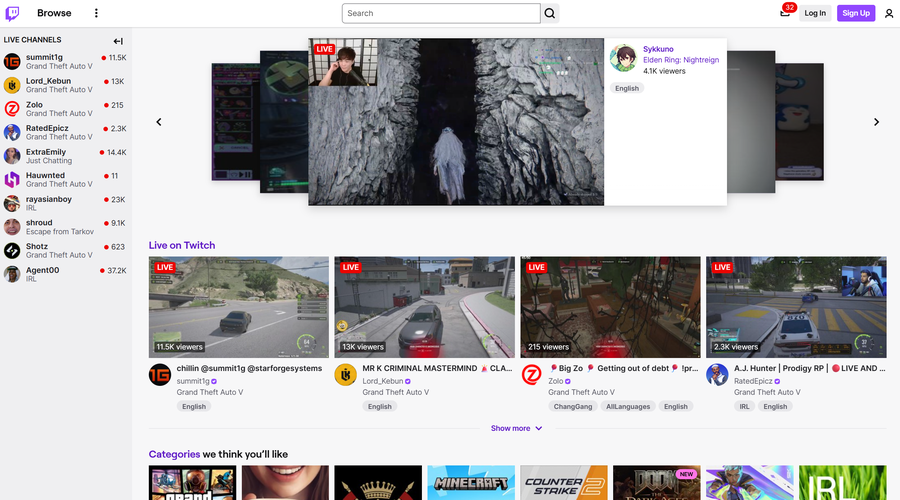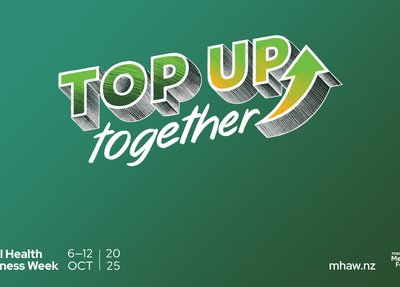
What is Twitch and how can I talk with my tamariki and rangatahi about the platform?

Noam on May 29, 2025
Are you wondering whether Twitch.tv is a safe platform for your child? In Aotearoa New Zealand, it maintains the minimum age requirement of 13 years old, along with most other countries, but does not have a specific local classification. The Twitch platform hosts a range of gaming and social communities. While we don’t classify social media platforms, content like livestreams, highlights, and screenshots can be considered publications by the Classification Office if they are produced on these platforms.
In this blog we discuss some benefits and risks of this popular online social communication platform. We’ve broken this information down into the following sections:
What do rangatahi say about the platform?
What is Twitch, how does it work?
Does Twitch have any paid features I should know about?
What do our Classifications Advisors say about it?
How old must you be to join Twitch?
OK! but does Twitch have parental controls?
Green Flags: Benefits of Twitch
What do rangatahi say about the platform?
Miss 18-year-old
“I've used twitch since 2020, I used to use it frequently as my main source of content but as of late I use it around once a week.”
“I often watch gaming streams of games that I like and play. I like to put it on in the background whilst I do something else and it makes for relaxing and easy to listen to content.”
“I think the format is really cool, and I think streams as a concept is neat. A community can be formed with smaller streamers and their regular viewers and it's really interactive.”
"I personally don't have any bad experiences on twitch but I do know for certain that there is objectionable (banned) content not meant for young viewers as well as questionable people on there. It's not regulated particularly well and mostly leaves it to the individual content creator to moderate their own content.”
“I would recommend it to friends if they want to watch longform content, I suppose. It may not be for everyone but I think some can find enjoyment in the casual and interactive vibe of streams."
What is Twitch? How does it work?
Twitch is a popular online streaming platform that allows people to watch influencers livestream games, music, talk shows, sports, travel & outdoors, cooking, and just hanging out chatting to their public viewers in real-time. Twitch is where millions of people come together daily to chat, give tips, and entertain together live.
You do not need an account to watch streams, however, an account is needed to comment, save favourite streamers, use emojis, and other features. Think of Twitch like YouTube, but the main content is all live. It is also common for users to watch short-form “clips” made by streamers or their viewers, where something interesting or funny has happened. These would get posted to other social platforms and maybe even go viral. Some videos may also be archived versions of live recordings that happened previously.
An influencer on Twitch is commonly referred to as a “streamer,” who broadcasts their game play and live chats as “streaming.” The platform's robust chat system allows streamers to talk directly with those watching and viewers to interact with their favourite influencers. Viewers regularly visit Twitch to discuss events in real-time, chat with other fans, or watch their favourite games, even unreleased ones, being played.

A screenshot of the stream options on Twitch
Does Twitch have any paid features I should know about?
Note: Twitch does not have any in-built parental controls for spending, therefore, it is important to discuss with your child how much money, if any, they can spend, as well as safety with banking information.
Donations
Streamers can earn money when viewers purchase and use “Channel Points,” which can be used to perform specific actions, and act as donations.
Some actions include highlighting their chat message to be more noticeable or—with enough channel points—even requesting the streamer to do a real-life action, such as a backflip.
Channel Points can be earned by watching the stream for a certain amount of time or purchasing a subscription while the stream is on.
Gifted subs are another form of donation where users gift subscriptions to other users. Some streamers also encourage people to donate to them on external sites like PayPal or Patreon.
Twitch Perks or Promotions
Some people get a Twitch account for the sake of gaining access to free in-game items. After linking a Twitch account to games like Fortnite and Marvel Rivals, users are given access to these free in-game items.
What do Classifications Advisors say about it?
In our YouTube Gaming article, we talked about when we classify games for New Zealand audiences the rating is based on the played experience. So, while a game may be restricted to older players, watching a streamer play it doesn’t have the same impact. Still, some content can be beyond what younger viewers are comfortable with, or just plain unsuitable for our rangatahi and tamariki.
Unlike YouTube videos, Twitch’s live-streaming focus means it’s free-flowing and somewhat unpredictable. Followers of ‘variety’ streamers for example, can watch them play anything from multiplayer silliness to grim horror titles. Fortunately, there are content warnings to help viewers consider if a stream is something they want to watch. These are explained in the next section.
Looking beyond just game content, bigotry and particularly sexism, is an ongoing problem in the gaming sphere and unfortunately some streamers hold these attitudes. As always with the internet, keeping an open conversation with tamariki and rangatahi is critical to helping them navigate these online spaces safely.
How old must you be to join Twitch?
The required sign-up age for Twitch is 13 years old in order to keep tamariki safe. However, some streamers may produce content that wouldn’t be appropriate for younger teenagers and, therefore, should be treated case by case. Please read our While you’re here just be aware: The Risks section below for more information.
OK! but does Twitch have parental controls?
Yes, Twitch does have parental controls, in the form of various recommended safety settings, as well as a comprehensive Guide for Parents and Educators. The following list of parental control features are offered by Twitch:
- Age verification: upon creating an account, Twitch asks its users to provide their date of birth (13+). However, no verification is required, so it is easy for users to falsify their age to gain access to Twitch.
- Mature content filtering: Parents can toggle mature content filtering to prevent their child from viewing content that might be inappropriate for them. 18+ content is turned off by default.
- Chat moderation: By turning on chat moderation, you can ensure inappropriate words said in chat by other viewers are not shown, protecting your children from reading inappropriate content. DMs or ‘whispers’ are also turned off by default.
- Privacy settings: This feature allows you to regulate the visibility of your child’s account, meaning their activity and who can interact with them is managed.
- Blocked users: Ensure you and your child know how to block other accounts if they come across people treating them inappropriately.
Children can remove these controls on their own, therefore we recommend having an open conversation with your child about ways to stay safe on the platform. If you would like step-by-step instructions on how to set up these controls, click here.
Can my tamariki communicate with others on Twitch?
Like other social platforms, Twitch does have a direct message (DM) feature for Streamers to DM fans and friends to ‘whisper’ to each other. One of the platform's main features, the built-in chat function, also allows fans to type messages to others (aka ‘whisper’ to each other) in the same stream. The moderators (mods) hired or chosen by streamers maintain the Community Guidelines and monitor their chat respectively, taking disciplinary action where necessary.
Green Flags: Benefits of Twitch
Twitch’s ability to create communities is very effective and can feel, for some viewers, like hanging out with their friends, even if they’re just watching someone play a game.
Discovering new streamers and supporting their journey can be meaningful for some people, and the platform puts emphasis on people and their enjoyment with whatever they’re doing. The site is very easy to navigate, with only a few clicks needed to enter a stream.
Viewers can also experience different games (learn what types of games they like and don’t like), learn tips and tricks for in-game play, and effectively upskill from watching others play.
What is Twitch doing to ensure safety on their platform?
Twitch is open to use for users aged 13 and over. Though it does not have a specific local classification, the platform does use Content Classification Labels (CCLs) to help viewers determine what content is appropriate for them.
Twitch encourages streamers to share whatever they and their communities are interested in, so long as they abide by the Community Guidelines. However, while any content violating these guidelines is not allowed, there is still content or topics that are not appropriate for everyone. In this case, streams are required to mark their stream with a CCL.
These labels indicate to users whether the stream they are about to click on contains the following themes:
- Mature-Rated Games
- Sexual Themes (prolonged kissing, detailed non-educational discussions of sexual topics or experiences)
- Drugs, Intoxication, or Excessive Tobacco Use
- Violent and Graphic Depictions
- Significant Profanity or Vulgarity
- Politics and Sensitive Social Issues (military conflict, civil rights, etc.)
- Gambling
Upon attempting to watch a stream flagged with a CCL, viewers land on a black screen with a warning detailing the types of inappropriate content in the stream they are about to watch and must provide consent before they are to enter the stream. These labels do not give a streamer the ability to broadcast content that is prohibited by the Community Guidelines.
Twitch platform safety:
While you’re here just be aware: The Risks
Open chat functions and voice features make it possible for adults to interact directly with children, particularly in public forums and then in private messages or ‘whispers’.
Offenders may use humour, shared interests, or tasks to build trust before introducing inappropriate content or contact.
Some grooming occurs over time, shifting from friendly interaction to manipulation, often using gifts or access to private servers.
Reports have noted cases of sexual exploitation where contact was first made through gaming platforms.
What you can do:
- Talk with your child about never sharing personal information
- Set clear privacy rules and regularly check your child’s friend list.
- Let your child know that they can always come to you, no matter what.
Impersonations or Donation Scams
Some ill-intentioned users set up accounts that mimic the username and profile picture of popular streamers, for example “GreatesttStreamer” instead of “GreatestStreamer.” They use these accounts to steal passwords and account donations, some of which were intended for the real streamer they are impersonating. Some scammers might even set up a stream to play a popular streamers’ previous/past videos, pretending to be them live.
Twitch mentions how the most common types of impersonations on their platform are of Twitch Partners and Staff.
If they have a purple check mark to the right of their username, then they are legitimate Partner. If they have a wrench Staff badge next to their name in the chat, then they are a legitimate Staff member. If not, they are an impersonator, and you should report them.
If you think you’ve encountered a potential impersonation scam, go to Netsafe’s resource and help page.
Other forms of scams you might come across are Spam Bots (non-human accounts that send repetitive advertisement messages in stream chats) or Link Scams sent by other users in chat to scam people who click them.
Harmful or Objectionable Content
Influencers on social media and platforms like Twitch can become big influencers in your child's life. They could impact what our children think about, and maybe even how they think about these things. It's important to know who they're watching and what values or ideas are being shared.
Show interest in who your child is watching, despite how childish or silly the humour might seem, or how mundane it might appear initially. Maybe even watch them yourself.
If your child starts sharing new or unexpected thoughts with you, ask them where they came from, without judgement. If they happen to be harmful or negative thoughts talk with them about their watching choices and how those influencers or streamers make them feel.
Like any public comment space, stream chats may also expose children to bullying or negative messages from other people.
Inappropriate Content
Your tamariki may encounter content on Twitch that is inappropriate for their age. Adult-only content is prohibited according to the Twitch Terms of Service. And Content Classification Labels provide warning before viewing content.
M or Mature games for example are allowed on the service for general viewing.
Check out your kid's favourite streamers to see how they behave and what language they use.
This is specifically important because a streamer playing a game rated G for general audiences will not always have equally appropriate behaviour themselves.
Some streamers might have younger audiences but discuss topics that reach beyond their level of understanding (such as gambling, politics, or global conflicts). Though these things don’t breach Twitch’s Community Guidelines, you may want to discuss these topics with your tamariki and help guide their understanding.
Sharing Personally Identifying Information (PII)
It is against Twitch’s Community Guidelines to share the personal information of others. It’s also good practice to avoid sharing personal information in any public online space. Talk with your children about what is ‘personal identifying information’, such as:
- Physical address or city
- Name and location of your school
- Personal or family names and phone numbers
- Social media usernames
- Passwords
- Credit card, bank account, or other financial information
- IRD number or Driver’s License numbers
- Any other personal information that could be used to identify or locate you
While these risks exist, it doesn’t mean Twitch itself is unsafe. But it’s a good reminder of why active parental involvement matters, especially for younger or new gamers & Twitch viewers.
What can parents do?
- Keep devices in shared spaces.
- Use built-in parental controls to manage servers and limit mature content.
- Encourage kids to talk about who they’re watching, who they’re talking to, and how it makes them feel.
- Remind them: if something seems weird, inappropriate, or scary. They can always turn it off or switch streams, and come to you.
Final thoughts and further reading
Maintaining frequent, healthy conversations with your child about what they’re doing on social media, without judging them, is very important.
Showing curiosity and calmness towards their online interests will ensure they are more able to tell you when they encounter problems on any of these platforms.
The world of social media is a complex one, and our children are bound to make mistakes at times. How well we approach these mistakes can determine whether they trust us to help them, so they are not navigating the digital world alone.
If you are having trouble with or unsure about your child's screen time management, Netsafe provide resources to help with this as well.
Resources:
- Gaming resource hub at Te Mana Whakaatu (resource)
- Keeping it safe in the gaming space (blog)
- Understanding loot boxes: a guide for parents and whānau (blog)
- Game on: Our guide to understanding international gaming classifications (blog)
- Advice for young people online gaming (Netsafe)
- I am a full-time Twitch streamer – this is what I do | The Spinoff
- Twitch Official Site
- Guide for Parents and Educators | Twitch
- How We’re Combatting Sexual Harassment | Twitch
- An Update to How We Enforce Our Hateful Conduct Policy | Twitch
- The Extreme Right on Twitch – ISD
Subscribe to our blog
Stay up to date with the Classification Office blog.


